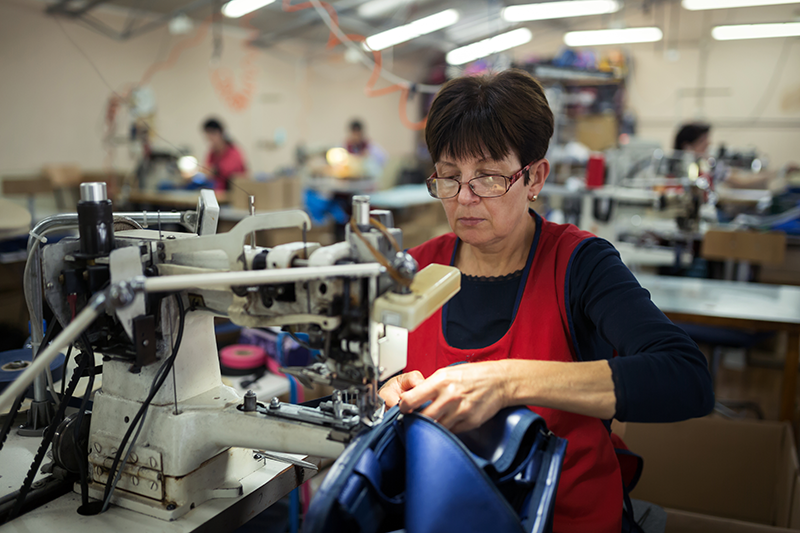
Płaca i dochód
Płaca i dochód to kluczowe elementy stosunków pracy i jakości życia. Kwestii tej poświęcono jeszcze więcej uwagi na poziomie UE ze względu na zmiany spowodowane kryzysem w gospodarce i całym społeczeństwie.


Europejski filar praw społecznych określa zobowiązania UE w zakresie wynagrodzeń: prawo pracowników do sprawiedliwych wynagrodzeń, które zapewniają godny poziom życia; zapewnienie odpowiednich płac minimalnych; zapobieganie ubóstwu pracujących.
Eurofound regularnie sporządza sprawozdania na temat różnych aspektów płacy i dochodu w świetle zmieniających się warunków gospodarczych w całej Europie.
Dzięki Europejskiemu Obserwatorium Życia Zawodowego (EurWORK) Eurofound gromadzi szereg informacji na temat płac. Regularny charakter sprawozdawczości umożliwia uzyskiwanie dłuższych serii spostrzeżeń na temat płac uzgodnionych w drodze układów zbiorowych, dzięki czemu możliwe jest monitorowanie tendencji. Eurofound regularnie publikuje aktualizacje tematyczne dotyczące ustawowych plac minimalnych i płac uzgodnionych w drodze układów zbiorowych. Monitoruje również zmiany na szczeblu krajowym w odniesieniu do mechanizmów ustalania wynagrodzenia, równości wynagrodzenia, zmiennego poziomu wynagrodzenia, niskiego wynagrodzenia i zróżnicowania wynagrodzenia ze względu na płeć.
Krajowe profile życia zawodowego zawierają informacje na temat płac na szczeblu krajowym i są regularnie aktualizowane. Eurofound prowadzi dwie bazy danych dotyczących płac (zob. źródła poniżej).
Europejski Monitor Zatrudnienia Eurofound (EJM) dokonuje oceny zmian w zatrudnieniu według zawodu, zgodnie z różnymi pomiarami jakościowymi, w tym płacami. W szczególności wnosi swój wkład w naszą wiedzę na temat zjawiska polaryzacji zatrudnienia, czyli zakresu, w jakim wzrost zatrudnienia prawdopodobnie będzie większy w górnej i dolnej części rozkładu wynagrodzenia niż pośrodku.
W ramach badań prowadzonych przez Eurofound monitorowane są również warunki płac w UE. Płace są kluczowym elementem badań oceniających jakość pracy przeprowadzanych przez Eurofound.W europejskim badaniu warunków pracy (EWCS) zarobki są jednym z siedmiu wskaźników jakości pracy. EWCS obejmuje również informacje na temat zróżnicowania wynagrodzenia ze względu na płeć. Zapoznaj się z interaktywnym narzędziem do wizualizacji danych EWCS.
Europejskie badanie jakości życia (EQLS) umożliwia monitorowanie wpływu dochodu na poziom życia oraz sposób, w jaki nierówności dochodowe są powiązane ze spójnością społeczną i samopoczuciem. Daje możliwość przeanalizowania sposobu, w jaki kryzys wpłynął na rodziny w przypadku rodzin o niskim dochodzie, zadłużenia gospodarstw domowych i grup zagrożonych ubóstwem. EQLS umożliwia również gromadzenie informacji na temat dochodu po przejściu na emeryturę i możliwościach wydłużenia życia zawodowego. Zapoznaj się z interaktywnym narzędziem do wizualizacji danych EQLS.
W ramach europejskiego badania przedsiębiorstw (ECS) przedstawiono wykorzystanie zmiennych systemów wynagrodzeń w zakładach, jak również objęcie pracowników tych przedsiębiorstw układami zbiorowymi dotyczącymi wynagrodzeń. Badanie pozwala powiązać informacje na temat zmiennego poziomu wynagrodzenia i negocjacji płacowych z informacjami na temat organizacji pracy, zarządzania zasobami ludzkimi, bezpośredniej partycypacji pracowników i dialogu społecznego, jak również z wydajnością i samopoczuciem w miejscu pracy.






